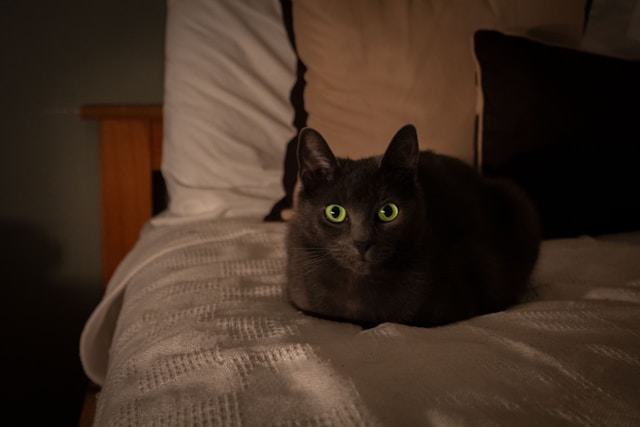
When Cats Talk at Night: The Meaning Behind the Meows
If you’ve ever been woken up by your cat’s late-night meows echoing through the house, you’re not alone. While the rest of the world sleeps, your furry companion seems to be hosting a midnight talk show. So what gives?
Nighttime meowing in cats is a common concern among pet parents. But don’t worry—your cat isn’t just being dramatic (well, not only dramatic). There are actually several reasons why your feline might become more vocal after dark.
Let’s explore what your cat’s evening “chit chat” might really mean—and how you can help everyone get a better night’s sleep.
1. They’re Seeking Attention or Companionship
Cats are known for being independent—but they’re social creatures too. If your cat meows at night, they might simply be feeling lonely, especially if you’re gone during the day. They could be calling out for you or trying to initiate play or cuddles.
What to do: Try giving them extra playtime before bed. Interactive toys, laser pointers, or feather wands can help burn off energy and fulfill their need for attention.
2. Your Cat Is More Active at Night (It’s Natural!)
Cats are crepuscular, which means they’re most active at dawn and dusk. Some cats extend that energy into the night, especially if they’ve slept most of the day.
What to do: Try adjusting their routine so they’re more awake and stimulated during the day. Daytime play sessions and feeding schedules can help reset their internal clock.
3. They’re Hungry or Want a Snack
Your cat’s meows might be their polite (or not-so-polite) way of saying, “Hey, I’d like a midnight snack!” Some cats associate nighttime with feeding time, especially if they’re used to getting food in the early morning.
What to do: Feed them a small meal or high-protein snack before bedtime. Puzzle feeders or timed feeders can also keep them occupied overnight.
4. Boredom or Lack of Stimulation
A bored cat is a vocal cat. Without enough mental and physical stimulation, your kitty might start meowing just to pass the time or get your attention.
What to do: Enrich their environment with scratching posts, cat trees, window perches, and solo toys that mimic hunting behavior.
5. Medical Issues or Discomfort
Sometimes, excessive meowing at night is a sign of an underlying health issue—especially in older cats. Conditions like hyperthyroidism, cognitive dysfunction (feline dementia), or even vision loss can lead to restlessness and vocalization.
What to do: If your cat’s nighttime meowing is sudden or unusually intense, it’s best to schedule a check-up with your vet.
6. Senior Cats and Cognitive Changes
Older cats may meow at night due to disorientation or confusion. This can be a symptom of feline cognitive dysfunction, similar to dementia in humans.
What to do: Keep lights on in key areas and maintain a calm, familiar routine. Your vet may recommend supplements or medications to help.
Tips for Calming Nighttime Meowing
- Stick to a regular feeding/play/sleep schedule
- Avoid giving attention during meowing (don’t reward the behavior)
- Tire your cat out in the evening with play
- Consider white noise machines to mask nighttime sounds
- Keep their sleeping area cozy and secure
Photo by Erica Marsland Huynh on Unsplash
